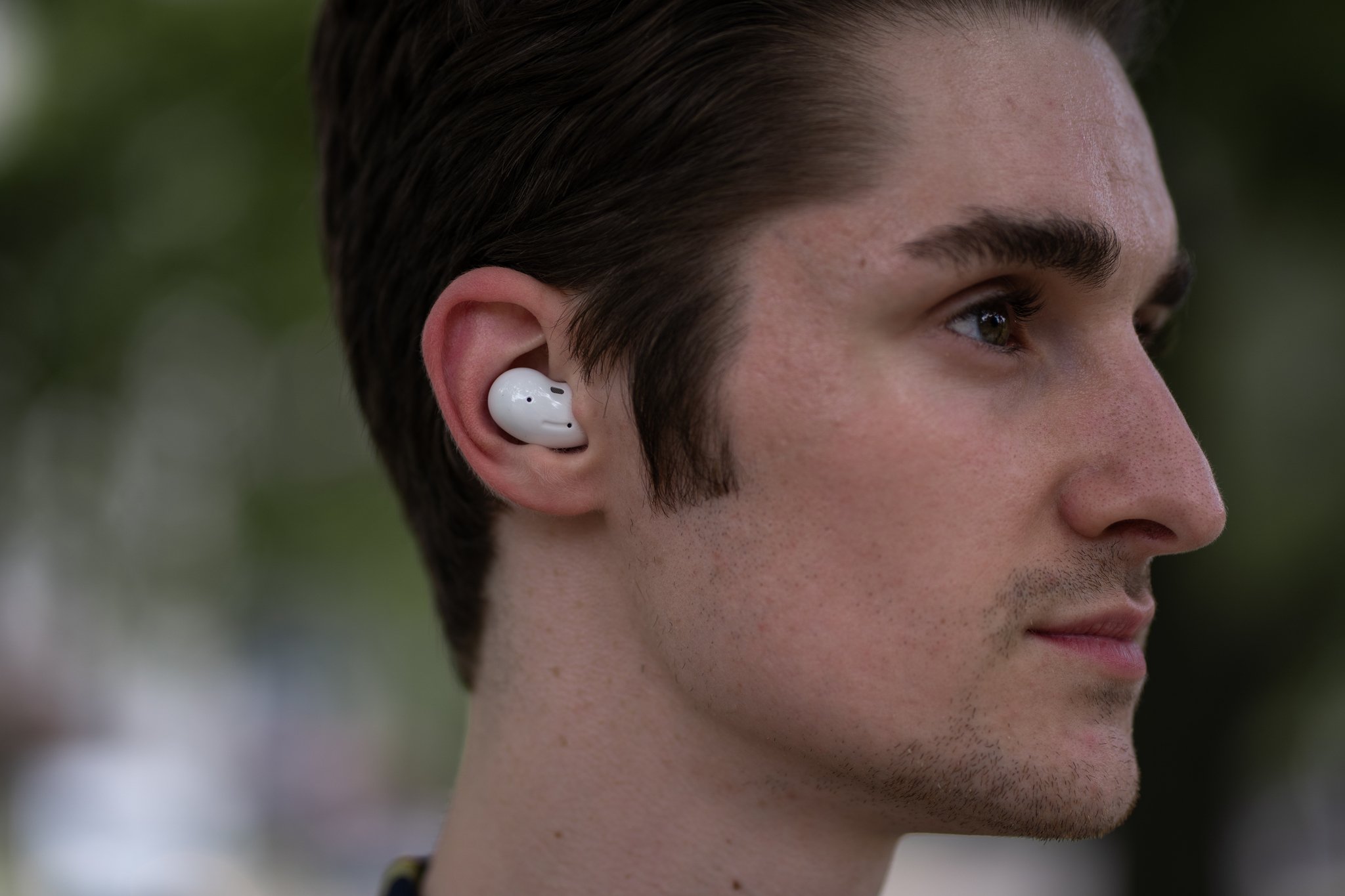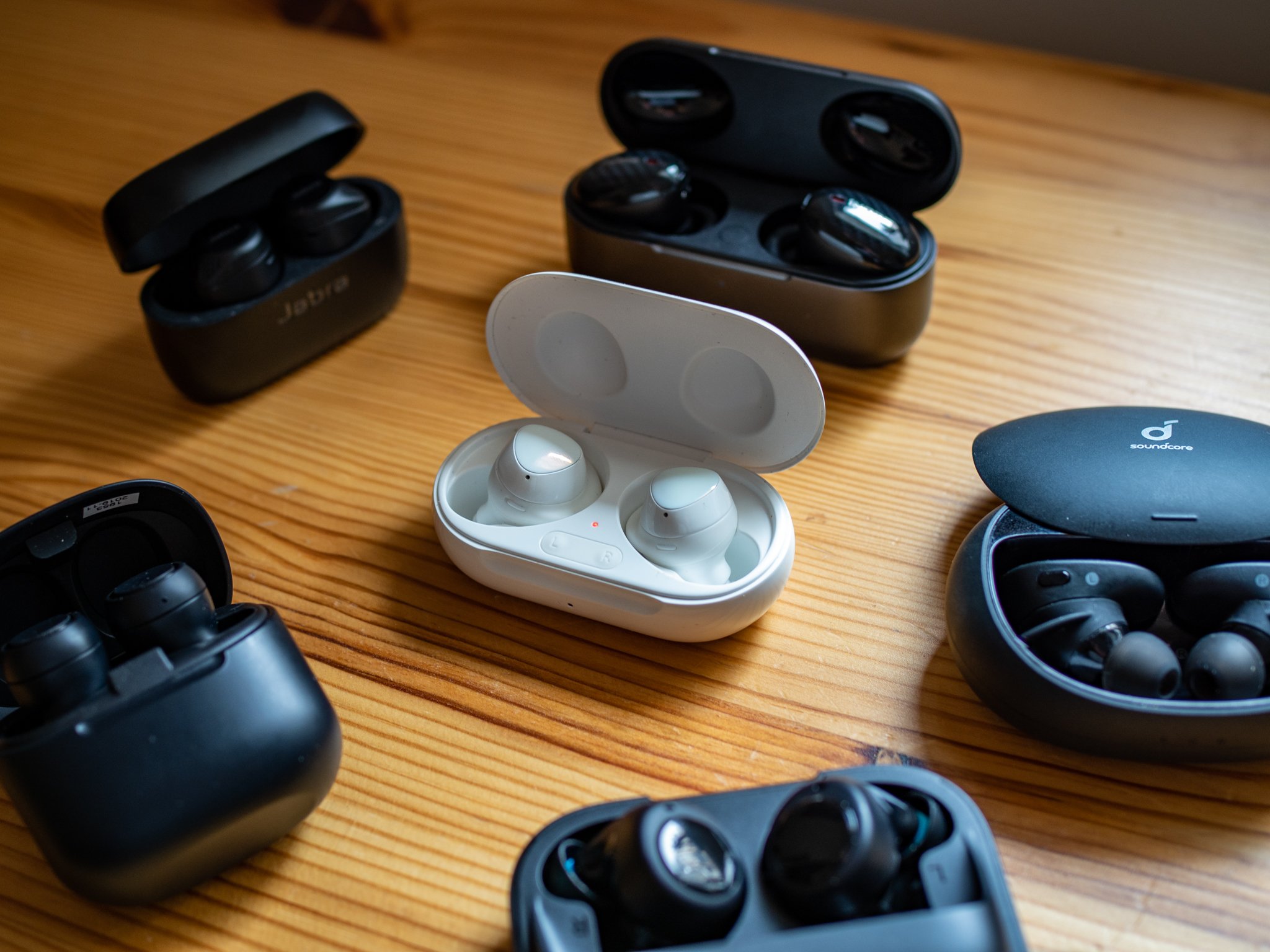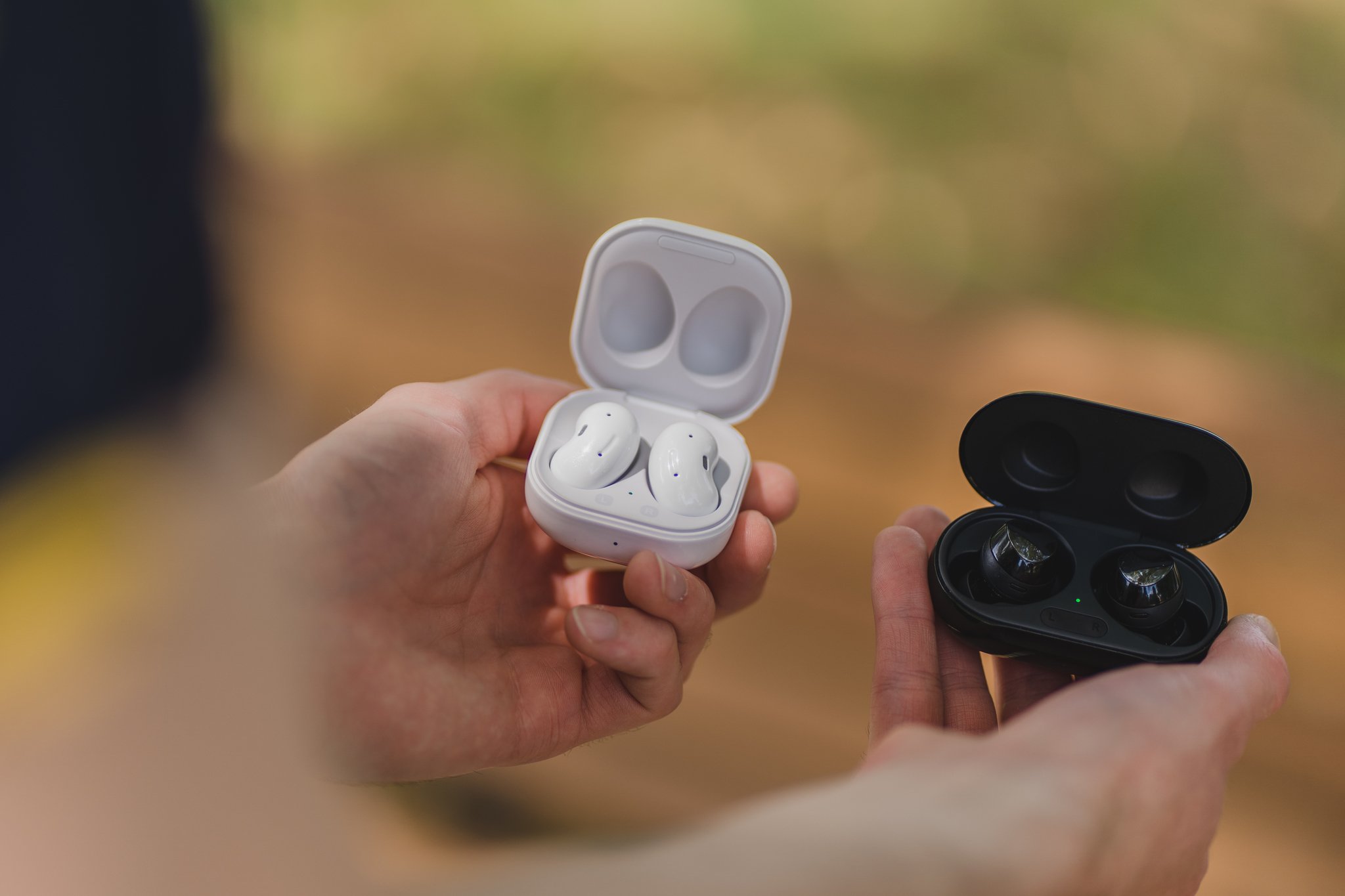One simple gadget, so many possibilities.
In our world of ever-changing and evolving technology, it can be easy to take for granted the gadgets and devices that are currently available to us. Our smartphones are tiny rectangles that give us instant access to the internet, desktop computers are vastly more powerful than they were a few years ago, and so on. Those are the big things people talk about when reminiscing about technology, but have you ever stepped back to think about your earbuds?
Headphones
Getting started
- 10 underrated features you need in your next pair of headphones
- Why some Bluetooth headphones sound better than others
Android
- Team AC's favorite headphones & earbuds
- Are AirPods good for Android?
- What Android users should know about EQ
- Surface Earbuds and Android
Windows
Apple
- Best cheap AirPod knockoffs
- What iPhone users should know about EQ
- Best EQ apps for iOS
- Spatial Audio and AirPods Pro
Gaming
Earbuds were popularized back in the 1980s with the release of the Sony Walkman, and then again in the early 2000s thanks to the iPod. In those days, earbuds were primarily used for listening to music and AM/FM radio. You plugged earbuds into your device, were able to jam out to tunes without disturbing others around you, and that was about the extent of what earbuds were used for.
As with all technology, however, the way we used earbuds back then has shifted considerably compared to how we interact with them today. Earbuds are still used for casual music-listening, but they can now do so much more than that — especially given the current climate of people working and learning from home.
If you step back and look at the big picture, it's pretty impressive how much this simple accessory has evolved over a short period of time.
Earbuds come in a lot of different shapes and sizes, but perhaps one of the biggest evolutions that we've seen for them has come in the form of true wireless earbuds. This is the design in which you have two earbuds that aren't connected by any wires at all, and the catalyst for the form factor came in 2016 with the announcement and launch of Apple's AirPods. AirPods were endlessly mocked and made fun off following that initial debut, but over the years since then, we've seen company after company trying to replicate the formula as best as they can.
Compared to traditional earbuds that you plug into your phone or connect via Bluetooth while still having a wire holding everything together, true wireless earbuds come with a lot more freedom and flexibility. It's easier to get a comfortable fit since you don't have to worry about pulling too hard on any wires, the earbuds can be stored in a compact charging case for easy portability, and you have the option of using both earbuds together for stereo sound or just one at a time for mono audio.
You can use true wireless earbuds in just about any scenario, but especially given the new normal of more people working from home than ever before, it's allowed true wireless buds to shine. I used to rely on noise-canceling headphones to listen to music while working at a local coffee shop, but now that I'm trying to stay home as much as possible, I can listen to my tunes with a pair of true wireless earbuds that are much lighter and easier to wear for long periods of time.
If you do happen to leave the house to go on a walk or bike ride, being able to just use a single earbud at a time has proven to be a huge benefit. By using a single earbud in one ear and keeping your other one free, you can still catch up on that new album or the latest podcast episode while maintaining an awareness of your surroundings. This is something you just couldn't do with earbuds a few years ago (at least not comfortably), but it's now an expected feature these days.
Similarly, while earbuds remain a great tool for listening to audio in a private manner, we're relying on them more than ever for inputting high-quality audio through their built-in microphones. Having meetings, lectures, and happy hours over Zoom or Google Meet has replaced the in-person equivalents for the time being, and keeping these things from being an absolute nightmare are earbuds.
When you wear earbuds to these virtual get togethers, you're ensuring you can hear everyone clearly and that everyone will be able to easily understand you. A lot of earbuds now come with noise-canceling tech for their microphones, ensuring you can still be heard even if there are annoying background sounds around you (people talking, a dishwasher running, etc.). The true wireless design can also come in handy here, as wearing a single earbud for a long meeting is more comfortable than keeping two in your ears for two hours, three hours, or however long it lasts.
That's all to say that earbuds are a lot more versatile than they used to be. Sure, you can still use them for just listening to music, but earbuds can do so much more than that in 2020. They're our workout companions, white-noise machines, meeting tools, etc. Part of this is thanks to the rise of things like Spotify, podcasts, and video chatting apps, but earbuds complete the experience of those things so that they're as thoroughly enjoyable as possible.
The way we use and think about earbuds has shifted tremendously over just a couple of decades, and in another 20 years from now, who knows where we'll be headed. Plenty of earbuds now support built-in voice assistants from the likes of Google Assistant and Alexa, and one can only imagine how those kinds of features will evolve a few years down the road.
Our world is one that's constantly changing, and alongside every other bit of technology, earbuds are ready to adapt and take new shapes for the task ahead.
Versatile buds
Samsung Galaxy Buds Live
$170 at Amazon $170 at Best Buy $170 at B&H
A prime example of modern earbuds
We've seen plenty of great earbuds over the last few years, and in 2020, one of the best releases came in the form of the Samsung Galaxy Buds Live. The Buds Live are the epitome of modern earbuds, offering a true wireless design, long battery life, great audio, active noise cancellation, and tons of extra features via the Galaxy Wearable companion app.








0 Response to "You Can See More: How modern use cases are changing the way you use your earbuds"
Post a Comment